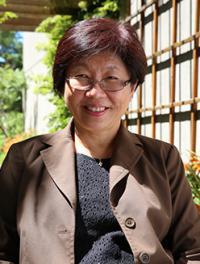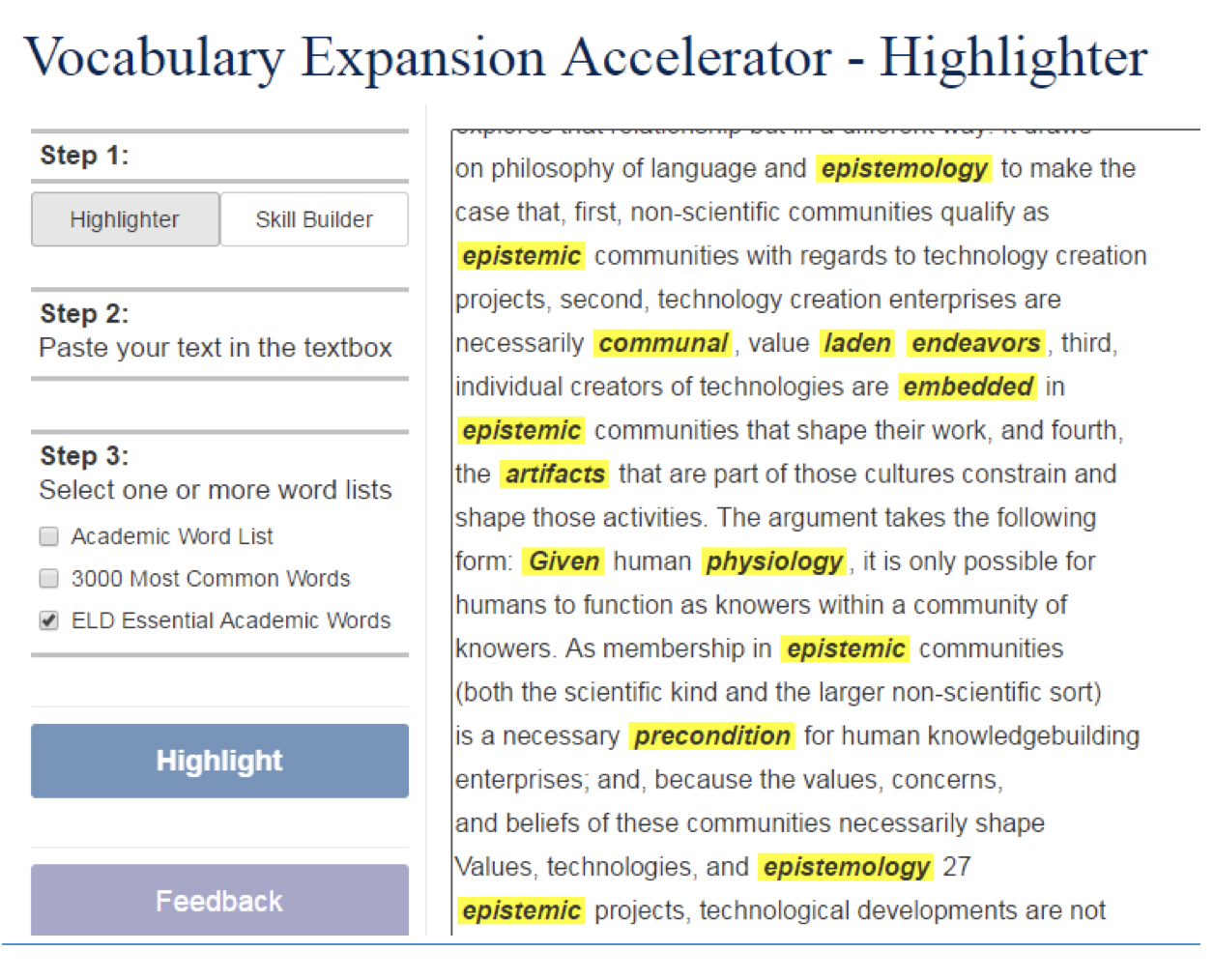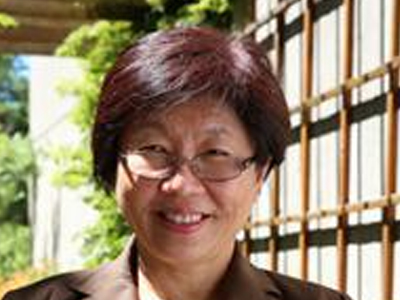DIGITAL ENGLISH LANGUAGE LEARNING RESOURCES DESIGNED TO MEET STUDENTS HALFWAY

At the University of Toronto’s Scarborough campus (UTSC), Dr. Elaine Khoo is working toward improving university-level literacy skills for students with diverse academic and linguistic backgrounds. As coordinator of the English Language Development Centre (EDLC) and a researcher and teacher in the field of student learning and cognition for over ten years, Dr. Khoo has been instrumental in developing support programs, workshops, and technological aids to develop students’ language skills. Dr. Khoo received ITIF funding to develop the innovative and extremely successful Vocabulary Expansion Accelerator app with her colleagues in the Information and Instructional Technology Services department, an online reading and writing development aid that can serve a variety of language development needs.
The ELDC serves students by focusing on developing their English language reading and writing skills at the university level, through workshops, one-on-one tutoring, and several online tools. Dr. Khoo emphasized that contrary to the common misconception that centres like the ELDC serve only English as a Second Language students. “We focus on academic English,” she says, to serve “domestic and international students who are strong students academically, . . . but find that they don’t have the level of language proficiency to function for academic purposes.” Dr. Khoo believes they need to help students feel that there’s no stigma to seeking to improve their academic English. She says they find innovative ways to help them overcome the fear, anxiety, and at the same time build community.
Her online Vocabulary Expansion Accelerator (VEA) tool, available through the ELDC website to students from all University of Toronto campuses, functions dually as a text-specific dictionary and as a vocabulary and grammar skill-builder. Students can copy and paste in an assigned reading and select from several options of word lists, ranging from the 3000 most common words in the English language (for those learning basic vocabulary) through higher level academic word lists (built from published lists of academic words that researchers have compiled from digitally scanning billions of texts). Immediately, the tool highlights words within the student’s chosen text, and users can double-click on a word to see its definition. A student can then read their assigned text in the viewer area, and when they come across an unfamiliar word, the definition will be at hand. “You don’t have to leave the page, you don’t have to key in your translator, you just click and go on and read,” explains Dr. Khoo.
“Students say one good thing about this is that there’s no distraction. You’re not going to a dictionary.com site,” Dr. Khoo says. Many students struggling with their academic literacy find constant Google searches for word definitions time-consuming and distracting. “I’ve got students who say, I spent three days doing this set of articles and it’s just a few pages; by the time I’ve completed it I’m just too exhausted to think,” she says. “So the students who are easily distracted because this is too tough to deal with, have no distractions. It’s purely working on their material.”
The VEA’s second function, as a skill-builder, works by searching a given text for words on its lists, then creating partial blanks for the user to fill in. By creating only partial blanks, users have to make choices about appropriate diction and grammatical forms based on the surrounding linguistic context. “I’ve been drawing a lot from neural science as I develop this concept,” Dr. Khoo remarks. “So thinking of the latest findings in neuroscience, I feel that this is how we could really change how students learn. Because every time they are trying to complete the blanks they have to emulate the composing process,” she says. “Because we give them several attempts, every time they go through, it is reinforcing the correct flow, a better sense of the language, of the sentence structure,” she states.
With daily or weekly practice, students can get a feel for the rhythms of good academic writing, learn new words from writers they admire, and reinforce the good writing habits they learn from writing workshops and classes. Explains Dr Khoo, “These are like training wheels to help to write, but write in a correct form, so that they don’t keep reinforcing wrong forms and fossilize incorrect forms over the years.”
“It gives them a chance to get into the head of the writer, and write like that,” she says. The idea for the VEA came from her years of work with students. “It arose from all my frustration of saying, I know these students can do so much but we need to help them with the vocabulary,” she says, which is the key to success in any academic discipline. “I thought, we need to get to the very root of the problem, and the very root is, if we could help them develop their vocabulary in a painless, seamless way that’s not extra work, not attending extra class…” Dr. Khoo is optimistic that her fun approach to reinforcing vocabulary and writing skills will help struggling students improve their grades on writing and speaking assignments, and even encourage them to participate more often in class by improving their confidence in general.
The VEA is, of course, not meant to be a stand-alone solution, but is offered as a complement to the ELDC’s writing and speaking workshop series, tutoring, and the Reading and Writing Through Email program, which offers students writing practice with a trained tutor at their convenience. Unique among online vocabulary building programs currently available, the VEA is designed “to be able to help students at whatever level they’re at,” according to Dr. Khoo. “The user is the one who determines the level of help they get out of this. This is really a tool that meets students halfway.”
There are thousands of students in need of English language support across the three U of T campuses, according to Dr. Khoo, ranging from ESL and international students to those transitioning to university level writing after spending years in the workforce. Even domestic students who have come straight from Canadian high schools generally need some level of support from one of the university’s many writing centres as they learn to elevate their academic writing skills. She notes, sadly, that at the University of Toronto, “We don’t have the capacity to serve our thousands of students.” While she maintains that in-person services are absolutely essential to student learning and cannot be fully replaced with digital learning labs, she sees the VEA and similar tools as “a stop-gap measure for those who need help but cannot get to a tutor.” To some extent, it has the potential to relieve some of the strain on U of T’s network of writing and academic skills centres.

Dr. Khoo hopes that using the VEA consistently to train their writing skills will “empower students to be able to contribute their different perspectives,” and might even prevent some particularly struggling students from dropping out. She believes that, after further refinement, the VEA could be used not only by university students at U of T and across Canada, but potentially around the world. “It’s got a framework that can serve whether it’s in Vietnam or India,” she says. It could also be modified for use in high schools with ESL students, increasing overall literacy among graduates and ensuring that ESL students will be better prepared for the higher-level language used in university classes. And, most tantalizingly, there is the possibility of eventually creating foreign language versions of the VEA. “I think maybe there could be a potential to collaborate with other faculty members for other languages,” she says, speaking of some of the features she hopes to develop when further funding is available from the university.
“All these students are so brilliant,” says Dr. Khoo. If the key to unlocking that brilliance is in building their academic vocabulary, their writing and argumentation skills, and their confidence, then her exciting VEA tool is surely a boon to the university at large.

